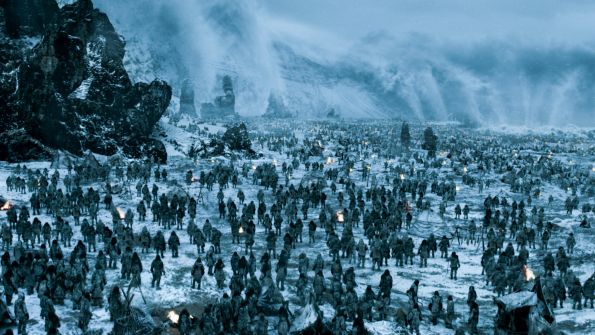Cognitive History (sage ability)
Cognitive history is an expert-status sage ability that bestows the ability to accurately predict the behaviour of large numbers of intelligent persons. The skill provides knowledge of onrushing mass events before they occur, giving characters the opportunity an attempt to prevent them or escape the event before it happens.
Events
Predicted events involve situations where matters of import between nations and peoples conflict, such as the initiation of a rebellion; the declaration of war; the strategy and movements taken by an invading army; the outcome of a battle; or disasters of a sociological nature, such as the onset of disease or famine.
From observation of current events, proclamations and the tenor of discussion in the streets, the character is able to see "signs" that portend one of these things occurring in the immediate or near future. The knowledge tells where it will occur, the causes and even a possible solution, provided steps could be taken to circumvent the situation before it arises.
Time Frame
The length of warning depends on the event; with some matters, the warning that certain events might occur would be a matter of days or weeks; with other things, years. The table provides a time frame for each sort of potential event — the occurrence of which is entirely in the Dungeon Master's hands.
In game terms, the inclusion of a great event in the campaign is the same; except that the character has forewarning of the event, whereas others — non-player characters — do not. This knowledge doesn't necessarily mean the players can prevent it; though they are almost certain to benefit from the knowledge in numerous ways, depending on their imagination and creativity.
| Level | Max. X.P. | HD | Level Title |
|---|---|---|---|
| 1st | 0 | 1 | acolyte, almoner, cantor, missionary |
| 2nd | 1,501 | 2 | adept, deacon, lector |
| 3rd | 3,001 | 3 | brahmin, chaplain, curate, rector |
| 4th | 6,001 | 4 | friar, imam, pastor, priest, rabbi |
| 5th | 13,001 | 5 | abbey, archdeacon, prefect |
| 6th | 27,501 | 6 | abbot, canon, exarch, mufti |
| 7th | 55,001 | 7 | lama, pontiff |
| 8th | 110,001 | 8 | bishop, patriarch |
| 9th | 225,001 | 9 | grand lama, high bishop, high priest |
| 10th | 450,001 | 9+2 | lord bishop |
| 11th | 675,001 | 9+4 | lord high bishop |
| 12th | 900,001 | 9+6 | archbishop, cardinal |
___ EDIT LINE ___
Time Frame
Larger numbers of people enable predictions further into the future, based on present events.
It is expected that the DM would reveal these mass movements to the character as though they had already taken place - though they won't until a month or more into the future. Thus the character is armed with legitimate knowledge, however the use to which this knowledge is applied.
Remember that the size of the group is the determining factor regarding the time before a prediction made manifests, in addition to the accuracy of that prediction; no prediction can be made of any number of persons less than 10,000:
- 10,000 persons would enable predictions up to a random 1-9 days into the future.
- 100,000 persons would enable a prediction with a spread of 1-7 days up to 2 weeks into the future.
- 1,000,000 persons would enable a prediction with a spread of 1-5 days up to 1 month into the future.
- 10,000,000 persons would enable a prediction with a spread of 1-3 days up to 2 months into the future.
- 100,000,000 persons would enable a prediction of the exact day up to 4 months into the future.
Thus, if a nation of 2 million persons were set to declare war on the 7th of April, 22 days from now, the character would know that the event would occur sometime between 5th of April and the 9th. Note that as the date approached, the character's knowledge of the exact day would NOT improve.
See History
